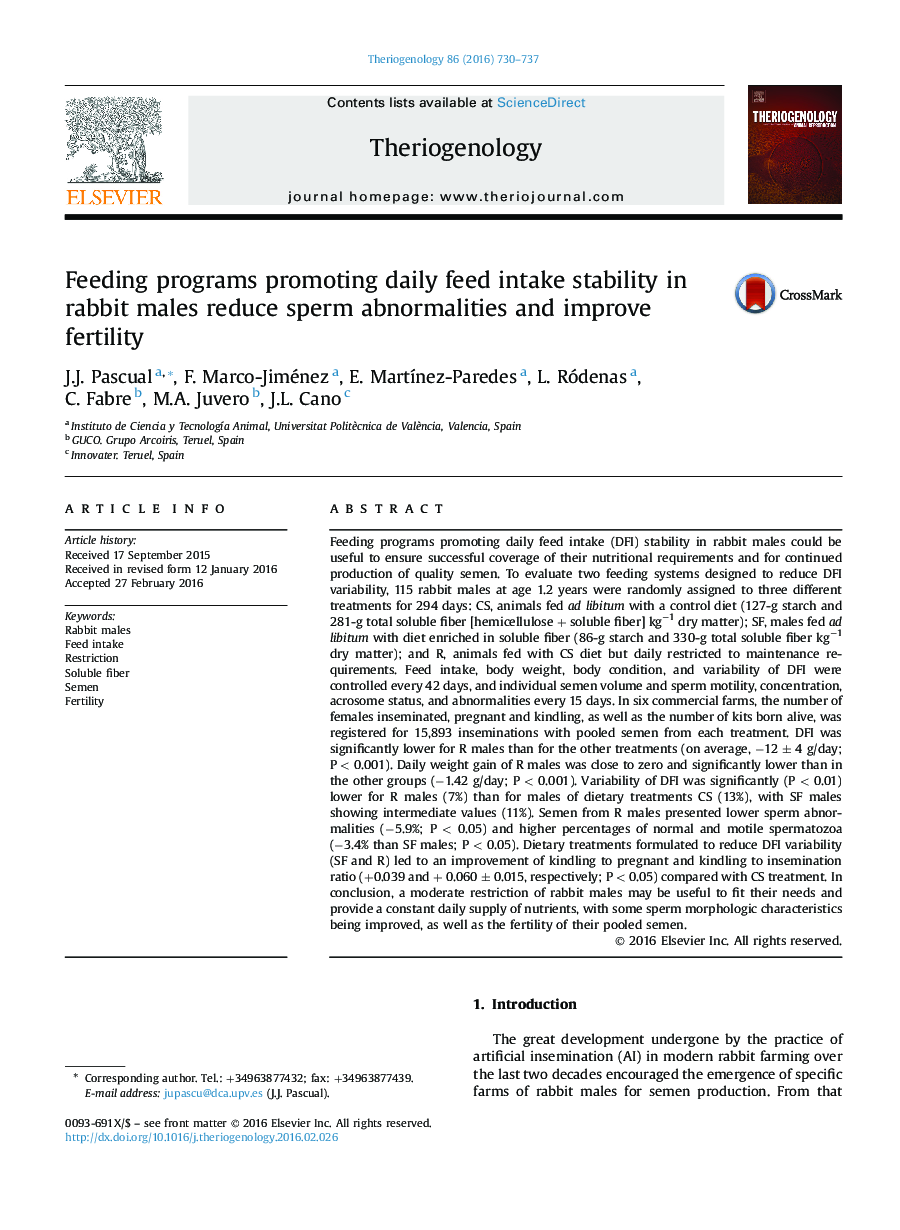| کد مقاله | کد نشریه | سال انتشار | مقاله انگلیسی | نسخه تمام متن |
|---|---|---|---|---|
| 2094956 | 1082063 | 2016 | 8 صفحه PDF | دانلود رایگان |
Feeding programs promoting daily feed intake (DFI) stability in rabbit males could be useful to ensure successful coverage of their nutritional requirements and for continued production of quality semen. To evaluate two feeding systems designed to reduce DFI variability, 115 rabbit males at age 1.2 years were randomly assigned to three different treatments for 294 days: CS, animals fed ad libitum with a control diet (127-g starch and 281-g total soluble fiber [hemicellulose + soluble fiber] kg−1 dry matter); SF, males fed ad libitum with diet enriched in soluble fiber (86-g starch and 330-g total soluble fiber kg−1 dry matter); and R, animals fed with CS diet but daily restricted to maintenance requirements. Feed intake, body weight, body condition, and variability of DFI were controlled every 42 days, and individual semen volume and sperm motility, concentration, acrosome status, and abnormalities every 15 days. In six commercial farms, the number of females inseminated, pregnant and kindling, as well as the number of kits born alive, was registered for 15,893 inseminations with pooled semen from each treatment. DFI was significantly lower for R males than for the other treatments (on average, −12 ± 4 g/day; P < 0.001). Daily weight gain of R males was close to zero and significantly lower than in the other groups (−1.42 g/day; P < 0.001). Variability of DFI was significantly (P < 0.01) lower for R males (7%) than for males of dietary treatments CS (13%), with SF males showing intermediate values (11%). Semen from R males presented lower sperm abnormalities (−5.9%; P < 0.05) and higher percentages of normal and motile spermatozoa (−3.4% than SF males; P < 0.05). Dietary treatments formulated to reduce DFI variability (SF and R) led to an improvement of kindling to pregnant and kindling to insemination ratio (+0.039 and + 0.060 ± 0.015, respectively; P < 0.05) compared with CS treatment. In conclusion, a moderate restriction of rabbit males may be useful to fit their needs and provide a constant daily supply of nutrients, with some sperm morphologic characteristics being improved, as well as the fertility of their pooled semen.
Journal: Theriogenology - Volume 86, Issue 3, August 2016, Pages 730–737
